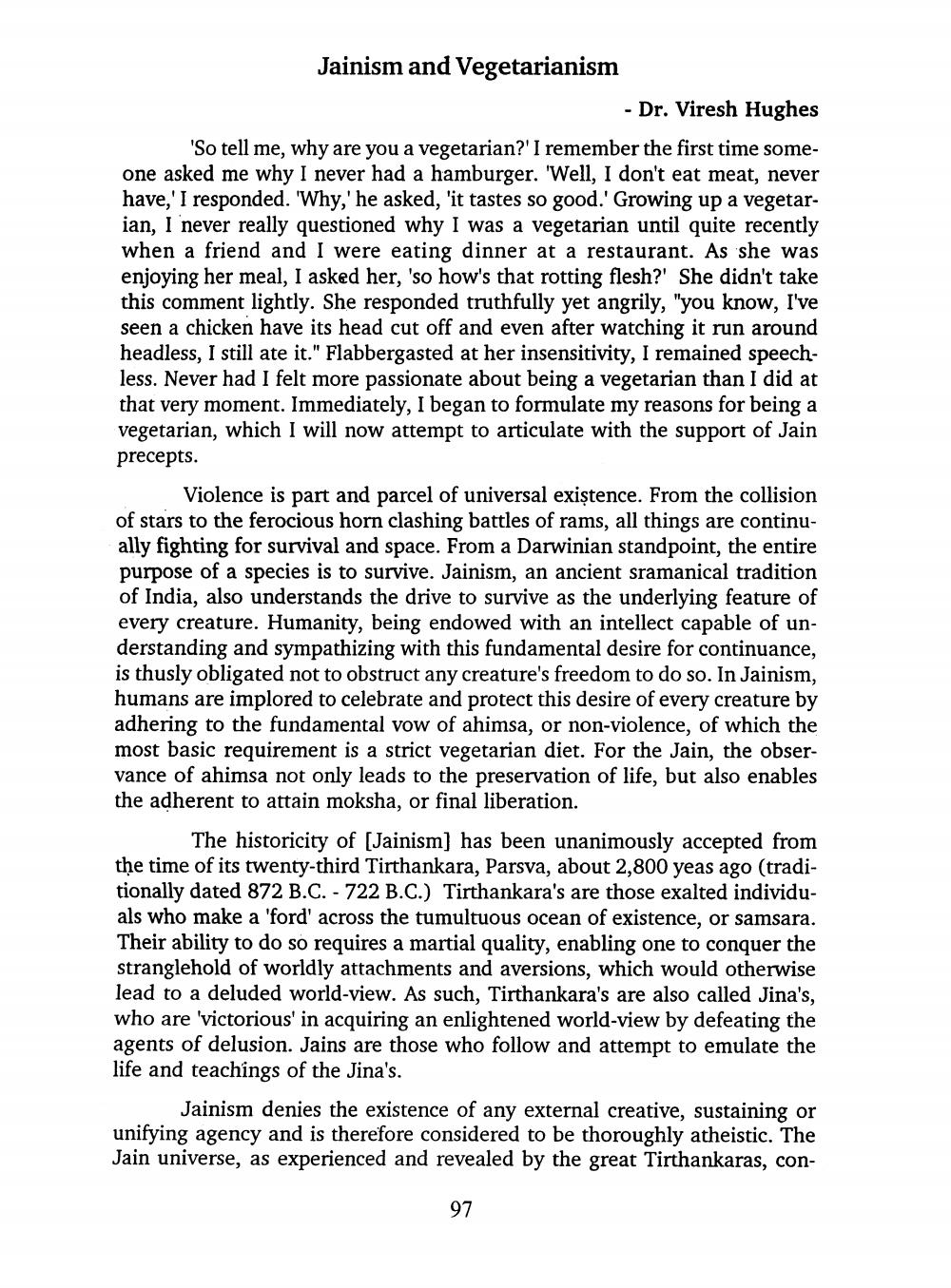________________
Jainism and Vegetarianism
- Dr. Viresh Hughes 'So tell me, why are you a vegetarian?' I remember the first time someone asked me why I never had a hamburger. 'Well, I don't eat meat, never have,' I responded. 'Why,' he asked, 'it tastes so good.' Growing up a vegetarian, I never really questioned why I was a vegetarian until quite recently when a friend and I were eating dinner at a restaurant. As she was enjoying her meal, I asked her, 'so how's that rotting flesh?' She didn't take this comment lightly. She responded truthfully yet angrily, "you know, I've seen a chicken have its head cut off and even after watching it run around headless, I still ate it." Flabbergasted at her insensitivity, I remained speechless. Never had I felt more passionate about being a vegetarian than I did at that very moment. Immediately, I began to formulate my reasons for being a vegetarian, which I will now attempt to articulate with the support of Jain precepts.
Violence is part and parcel of universal existence. From the collision of stars to the ferocious horn clashing battles of rams, all things are continually fighting for survival and space. From a Darwinian standpoint, the entire purpose of a species is to survive. Jainism, an ancient sramanical tradition of India, also understands the drive to survive as the underlying feature of every creature. Humanity, being endowed with an intellect capable of understanding and sympathizing with this fundamental desire for continuance, is thusly obligated not to obstruct any creature's freedom to do so. In Jainism, humans are implored to celebrate and protect this desire of every creature by adhering to the fundamental vow of ahimsa, or non-violence, of which the most basic requirement is a strict vegetarian diet. For the Jain, the observance of ahimsa not only leads to the preservation of life, but also enables the adherent to attain moksha, or final liberation.
The historicity of [Jainism) has been unanimously accepted from the time of its twenty-third Tirthankara, Parsva, about 2,800 yeas ago (traditionally dated 872 B.C. - 722 B.C.) Tirthankara's are those exalted individuals who make a 'ford' across the tumultuous ocean of existence, or samsara. Their ability to do so requires a martial quality, enabling one to conquer the stranglehold of worldly attachments and aversions, which would otherwise lead to a deluded world-view. As such, Tirthankara's are also called Jina's, who are 'victorious' in acquiring an enlightened world-view by defeating the agents of delusion. Jains are those who follow and attempt to emulate the life and teachings of the Jina's.
Jainism denies the existence of any external creative, sustaining or unifying agency and is therefore considered to be thoroughly atheistic. The Jain universe, as experienced and revealed by the great Tirthankaras, con
97




